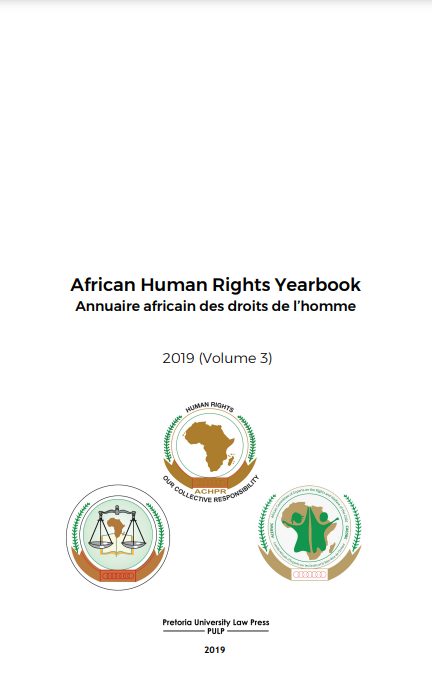Interrogating the status of amnesty provisions in situations of transition under the Banjul Charter: review of the recent jurisprudence of the African Commission on Human and Peoples’ Rights
Keywords:
African Commission on Human and Peoples’ Rights, amnesty, legality, transition, obiter dictum, Kwoyelo v UgandaAbstract
ABSTRACTDuring the course of the past three decades, various legal developments under international law have triggered academic debate and jurisprudential analysis on the legality of amnesties. While there is general recognition that states are not completely free to grant amnesty, the debate continues whether international law, with the exception of specific treaty obligations, generally bans the use of amnesty in all its forms, including in relation to serious violations, particularly in the context of transitions from war to peace. This case commentary reviews the analysis by the African Commission on Human and Peoples’ Rights of the legal validity of amnesty provisions under the African Charter on Human and Peoples’ Rights. It in particular examines how the obiter dictum in the African Commission’s finding in the communication Thomas Kwoyelo v Uganda advances the Commission’s jurisprudence on amnesty, and discusses the parameters that the Commission set for evaluating amnesty provisions including those that are additional, if not novel, to existing guidelines. Before this finding, the Commission’s position on amnesty was inadequately articulated, generally formulated and confined to specific cases. This case note observes that while the African Commission, following a methodical line of analysis, establishes the legality of amnesty under the African Charter including in respect of serious violations, its obiter dictum in Kwoyelo also enhanced the frontiers of the law on the question of legal validity of amnesty. It did so by clarifying not only the scope of legality of amnesty provisions but also the substantive and procedural conditions amnesty provisions should meet.
TITRE ET RÉSUMÉ EN FRANCAIS: Questionnement sur la conformité à la Charte de Banjul des règles d’amnistie en période de transition: évaluation de la récente jurisprudence de la Commission africaine des droits de l’homme et des peuples RÉSUMÉ
Au cours des trois dernières décennies, divers développements juridiques en droit international ont déclenché un débat théorique et une analyse jurisprudentielle sur la légalité des amnisties. Bien que l’on soit généralement d’accord sur le fait que les États ne sont pas entièrement libres d’accorder l’amnistie, le débat porte le plus souvent sur la question de savoir si le droit international, à l’exception d’obligations conventionnelles précises, interdit l’utilisation de l’amnistie sous toutes ses formes, y compris en cas de violations graves, surtout lors de la transition de la guerre à la paix.
Le présent commentaire examine l’analyse par la Commission africaine des droits de l’homme et des peuples de la validité juridique des dispositions d’amnistie à la lumière de la Charte africaine des droits de l’homme et des peuples. Il examine en particulier comment l’obiter dictum de la conclusion de la Commission africaine dans la communication Thomas Kwoyelo c. Ouganda avance la jurisprudence de la Commission en matière d’amnistie, et examine les critères définis par elle en vue d’évaluer les dispositions relatives à l’amnistie dont certains s’avèrent être novateurs par rapport aux directives existantes. Il y a peu, la position de la Commission sur l’amnistie était formulée en des termes généraux et limitée à des cas spécifiques. Ce commentaire conclut que, si la Commission africaine, suivant une ligne d’analyse méthodique, établit la conformité de l’amnistie à la Charte africaine, y compris en ce qui concerne les violations graves, son obiter dictum a également renforcé les limites du droit sur la question de la validité juridique de l’amnistie en précisant non seulement l’étendue de la légalité de ses dispositions, mais également les conditions de fond et de forme que doivent remplir les dispositions d’amnistie.


